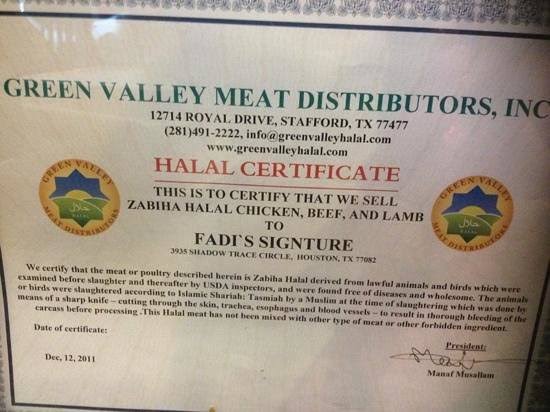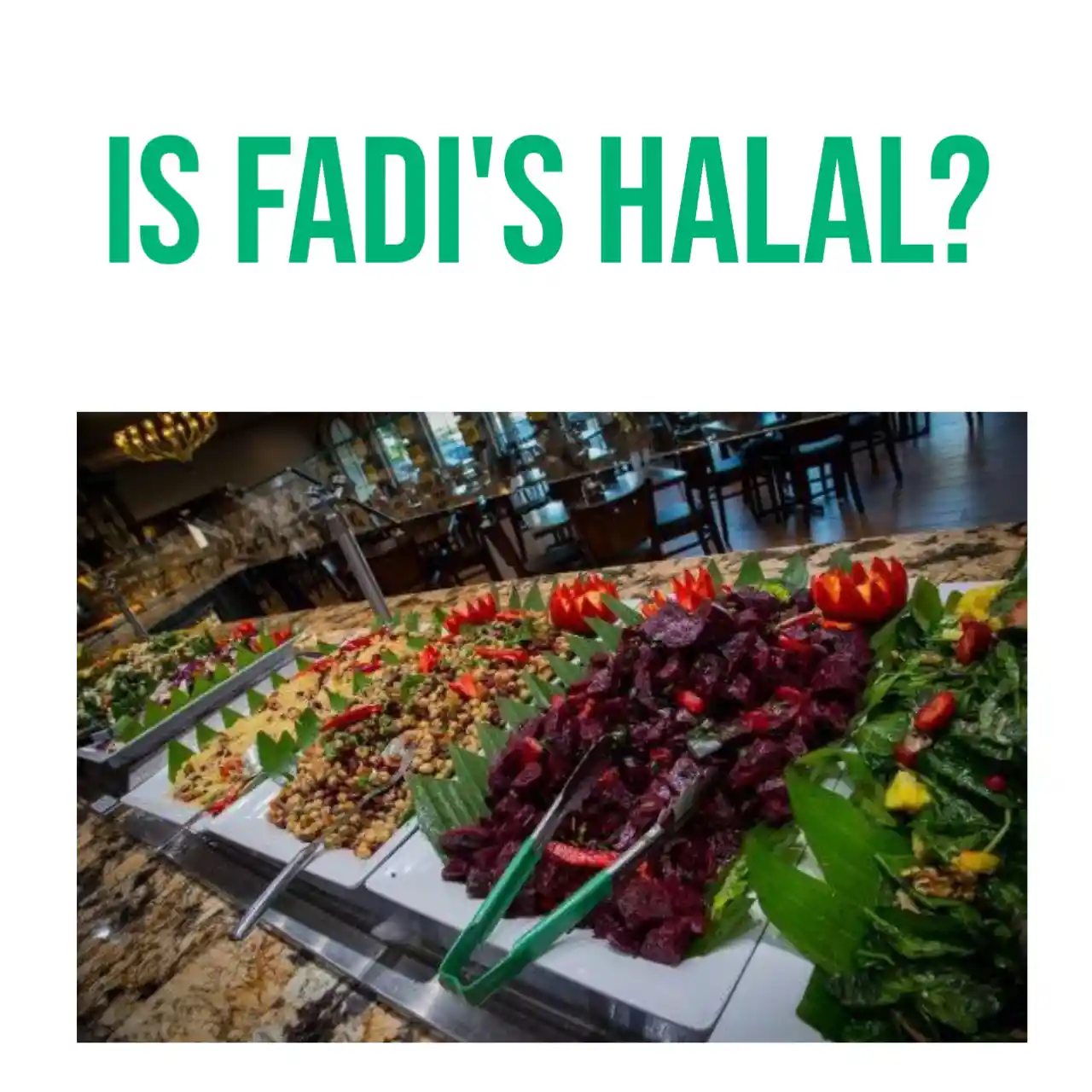Is Fadi’s Halal? The ANSWER You Need To Know
If you eat a halal diet, you may be wondering: Is Fadi’s Halal? And we’re here to spill the details! Check out this post to learn if Fadi’s are safe for a halal diet.
Advertisements
Fadi Dimassi, the chef and founder, has been serving fresh Mediterranean and Lebanese cuisine in Houston, Texas for over 25 years. Fadi’s menu is based on authentic, family-owned recipes.
Fadi, who was born and raised in Saida, Lebanon, began training in his family’s restaurant at the age of 19 and now serves his award-winning Mediterranean cuisines through locations in Houston and Dallas.
Is Fadi’s Halal?
Yes, Fadi’s hot chicken is Halal. The owner of the restaurant verbally confirmed the Halal status. As of February 2011, all halal menu at all locations per phone call with restaurant and halal logo on website.
Check via their official website here.
Advertisements
Is Fadi’s Mediterranean Grill Halal?
Yes, fadi’s Mediterranean grill is halal- that means it is kosher. Here is the picture of Fadi’s Mediterranean Grill, Dallas that shows their halal status.

Why Fadi’s Is Halal?
Allah has made everything halal for us so long as there is no proof that it is haraam. This is a way in which Allaah has made things easy for us. Since the owner confirmed that they serve 100% halal menu, then without any doubt Fadi’s is halal and permissible to consume.
Related Is Dave’s Hot Chicken Halal?
What Is Consider Halal In Islam?
According to the Muslims in Dietetics and Nutrition, a member group of the Academy of Nutrition and Dietetics, Halal food can never contain pork or pork products (including gelatin and shortenings) or alcohol.
Halal animals must be slaughtered by hand, not by machine, by a Muslim who says Bismillah. The animal’s blood must drain completely after it is killed because Muslims who eat Halal do not consume fresh blood of animals.
Advertisements
If those slaughtering the meat are from the People of the Book, namely Jews and Christians, it is permissible to eat it, and it is not appropriate to ask as to how it was slaughtered or whether they mentioned Allah’s name over it or not.
That is because the Prophet (blessings and peace of Allah be upon him) ate the lamb given to him by a Jewish woman in Khaybar, and he ate the meal to which a Jewish man invited him, and it contained rendered fat, but the Prophet (blessings and peace of Allah be upon him) did not ask how they had slaughtered it or whether they had mentioned Allah’s name over it.
In Saheeh al-Bukhari it is narrated that some people said to the Prophet (blessings and peace of Allah be upon him): Some people bring us meat, and we do not know whether the name of Allah was mentioned over it or not. He said:
Advertisements
“Say Bismillah over it yourselves and eat it.”
‘Aa’ishah (may Allah be pleased with her), who narrated the hadith, said: They had only recently become Muslim.
These hadiths indicate that it is not appropriate to ask about how the slaughtering was carried out if the person who carried it out is qualified to do so.
This highlights the wisdom of Islamic teachings and how Islam makes things easy for people, because requiring people to find out whether conditions are met even if the person who performed the action is qualified would cause a great deal of difficulty and hardship, and Islam would become a religion of hardship and difficulty.
However, if the meat came from a foreign country where the slaughterers are people whose meat is not permissible to eat, such as Zoroastrians and idol worshippers, and those who do not follow any religion, then it is not permissible to eat it, because Allah, may He be exalted, has not permitted the meat of any non-Muslims except those who were given the Book, namely the Jews and Christians.
If we are uncertain as to whether the slaughterman was one whose meat is permissible or one whose meat is not permissible, then that is not a problem [i.e., if most of the people in that country are those whose meat is permissible].
Conclusion
With the Muslim community in the United States having few options for dining out, due to a lack of halal places, Fadi’s adds another restaurant to the growing list of places that serve halal menu.
Advertisements

